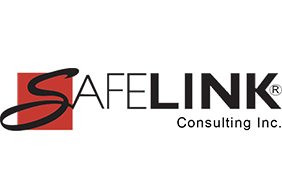It is not unusual today for a medical device manufacturer to outsource components of their production to third party subcontractors or suppliers. The subcontractor or supplier is required to meet the medical device manufacturer’s standards and FDA’s requirements. Both FDA in 21 CFR 820.50 and ISO 13485:2016 in Section 7.4 detail purchasing controls and supplier evaluation requirements. Many manufacturers outsource to improve operational efficiency, but without proper scrutiny the manufacturer may take on huge risks for product safety and compliance. As a result, third party suppliers or subcontractors can either be a risk or asset to their customer in this regard.
Are you a valuable asset or a potential risk to your customers as a supplier or subcontractor? The increasing emphasis on enhancing operational efficiency through outsourcing has drawn more attention from the FDA. It is crucial for suppliers/subs to meticulously ensure that all requirements are met, aiding their customers in surpassing expectations. Failing to do so could result in severe consequences, such as the FDA halting your customer's distribution, disruptions in production due to nonconformities, loss of business, or the inability to pass an audit.
FDA continues to look at the global supply chains and have increased import inspections. A supplier or subcontractor should not put their customer’s operation at risk for Inspectional Observations, warning letters, and recalls by not maintaining quality through a robust quality management system. It is the supplier/subcontractors' foundational responsibility to help their customers match or exceed expectations.
Consider the following ramifications:
FDA could halt your customer's distribution
Disruptions due to nonconformance
Loss of business
Failure to pass an audit
Medical device manufacturers must develop and implement a Supplier Management Process in order to qualify their suppliers and subcontractors. This entails establishing criteria for evaluation and selection of suppliers. They need to consider the ability of their supplier/subcontractor to provide a product that meets their requirements. Those requirements can include:
Accurate registration with FDA
Capability to produce devices
Effective quality standards
ISO registration
Acceptable performance
Notification process of manufacturing changes
Ability to pass an audit by the customer
The medical device manufacturer may include an audit of the supplier/subcontractor operations as a part of their new supplier evaluation plan. It’s not required by FDA or ISO, but it is a really good idea for medical device manufacturers to audit critical suppliers/subcontractors. Depending on a supplier’s performance, FDA could force an audit as a corrective action when the medical device manufacturer’s purchasing controls are inadequate. The medical device manufacturer's audit of their subcontractor can help them gain value and gather important information that just can’t be obtained without a visit to the subcontractor's facility.
Your responsibility as a supplier/subcontractor of medical device materials and components is to ensure that you meet the quality standards that are expected by your customers. SafeLink can help you be more aware of how to be an asset and not a risk to your customers as they have to hold up to the more and more complex regulatory environment.
Need help?
Contact SafeLink Consulting for assistance. If you need help, contacting an expert such as SafeLink Consulting is a step in the right direction. Contact us to learn how services are utilized to benefit your business to assist you in achieving a more effective quality management system!
Discover what medical device manufacturers including dental labs need to understand about optimizing their supplier management process.
Get dental lab compliance and risk assessment expertise.
Learn more about FDA Dental Compliance







